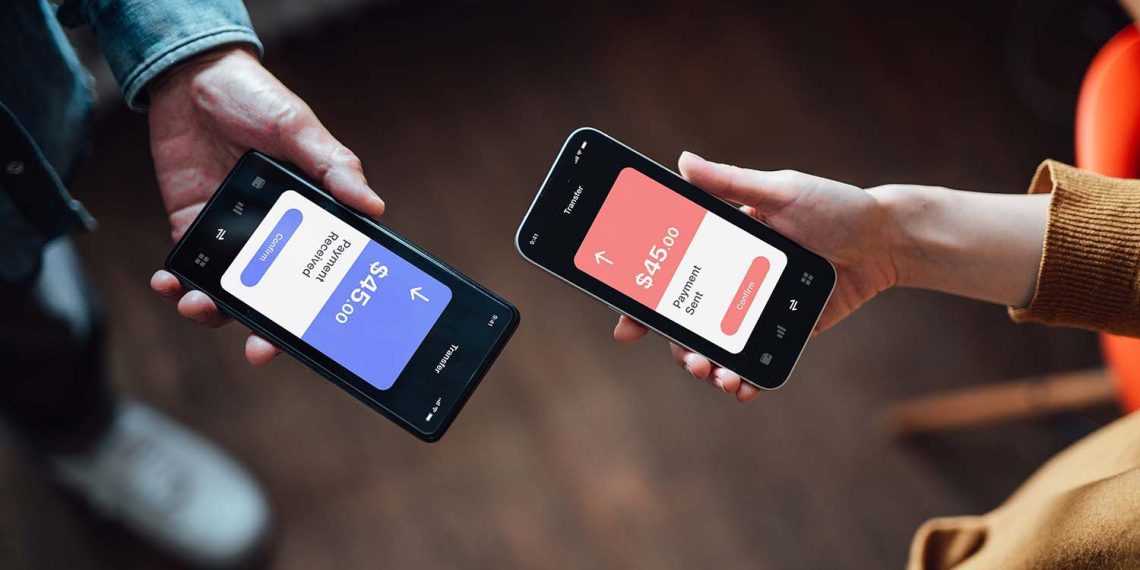Whether you’re a business owner or simply looking for ways to pay friends and vendors, payment apps are becoming increasingly popular. They’re convenient, fast, and secure — changing how we pay for goods and services.
For example, Uber has revolutionized ridesharing by making payments quick and easy. And companies like PayPal and Venmo bring the same experience to P2P transactions.
Table of Contents
They’re Convenient
The popularity of mobile payment apps has been growing in recent years. According to the 2022 ACI WorldWide annual pulse report, 45% more customers made payments with their mobile wallet in 2022.
There is a variety of payment apps that make paying for goods and services more accessible without cash or a checkbook. They work with any credit or debit card and can even be used to split bills with friends.
When you use a mobile payment app, all your financial information is encrypted to keep it safe from prying eyes. Many of these apps also offer rewards and discounts so that you can save money over time.
For example, you can send money to friends and family via mobile payment apps, and they’ll receive it instantly. However, you need to make sure your recipient knows about the app and that they have the correct email address or phone number.
They’re Secure
If you’re like most people, you use money transfer apps regularly. They’re an incredibly convenient way to pay for things like your morning coffee or split the bill at lunch with friends. You can use them to pay your babysitter or the neighborhood kid who mows your lawn.
While using a payment app, ensure you only send money to someone you know and trust. These apps aren’t able to reverse misdirected payments, so you have to be extra careful about how you send your money.
In addition, some payment apps share data with third parties that can be used for marketing purposes. This means you may start seeing targeted ads while shopping online.
Another security concern is that hackers and scammers can exploit these apps to steal your information. That’s why installing automatic app updates on your phone is essential.
In addition, you should never click links that ask for your personal information or login credentials. These are almost always scams from criminals looking to hack your account and drain your funds.
They’re Fast
Payment apps allow you to link your debit or credit card to a digital wallet. Then, you can use the app to pay through e-commerce sites, in-store at the register, or to transfer money between friends and family.
The most popular payment apps include PayPal, Venmo, Cash App, and Google Pay. These are all easy to use and make transferring funds a breeze. They also provide added security measures like email login and multi-factor authentication.
As a result, they are increasingly used by consumers to make payments daily. More than 80% of adults in the United States use these applications regularly, and 94% of millennials do.
While it’s true that many people are wary about using an app on their smartphone, the best ones have security protocols in place to protect your information. For instance, many apps use two-factor authentication and one-time-use PINs to keep your account secure.
In addition, they usually use encrypted communications to prevent attackers from accessing your private data. However, they’re still vulnerable to man-in-the-middle attacks and data breaches, so choosing a payment app that implements additional security is essential.
Another benefit of mobile payment apps is that they process transactions faster than traditional credit cards. This is especially helpful for businesses with checkout lines that can take a long time. Contactless payment methods, such as Apple Pay or Android Pay, allow customers to check out faster and increase conversions.
They’re Easy
If you haven’t heard of them, payment apps are digital wallets that make paying for goods and services accessible. These mobile payment options are becoming increasingly popular, revolutionizing purchasing online and in stores.
They’re easy to use and convenient for various reasons, including the fact that they don’t require trips to the bank or an ATM, and they’re often more secure than credit cards. In addition, they’re available at any time and place.
When choosing a payment app, ensure it offers low or no fees, good customer service and strong fraud protection. You’ll also want to avoid requiring additional personal information to be able to use them.
For example, PayPal is one of the most popular payment apps and is extremely easy to use. However, not all payment apps are created equal, and you’ll want to understand how they work before you choose the best one for you.
Money transfer apps are other popular options for sending and receiving payments, but they’re not as secure as a traditional bank account. You’ll want to pick an app backed by a reliable financial institution with excellent dispute resolution policies, like PayPal. You’ll also want to check that the app is safe and uses encryption to secure your money.

